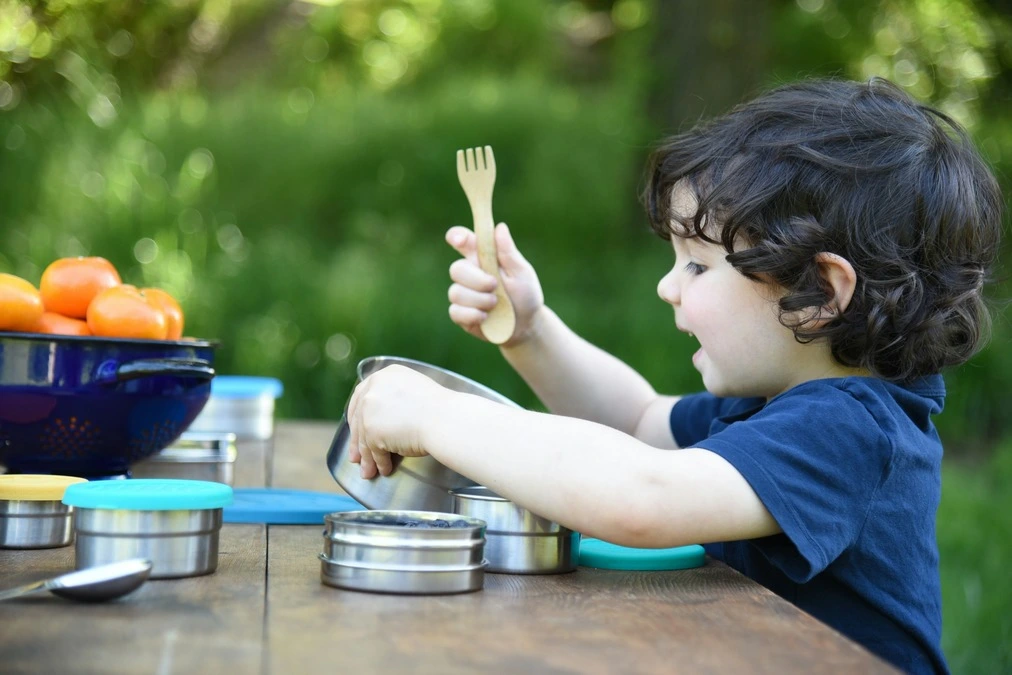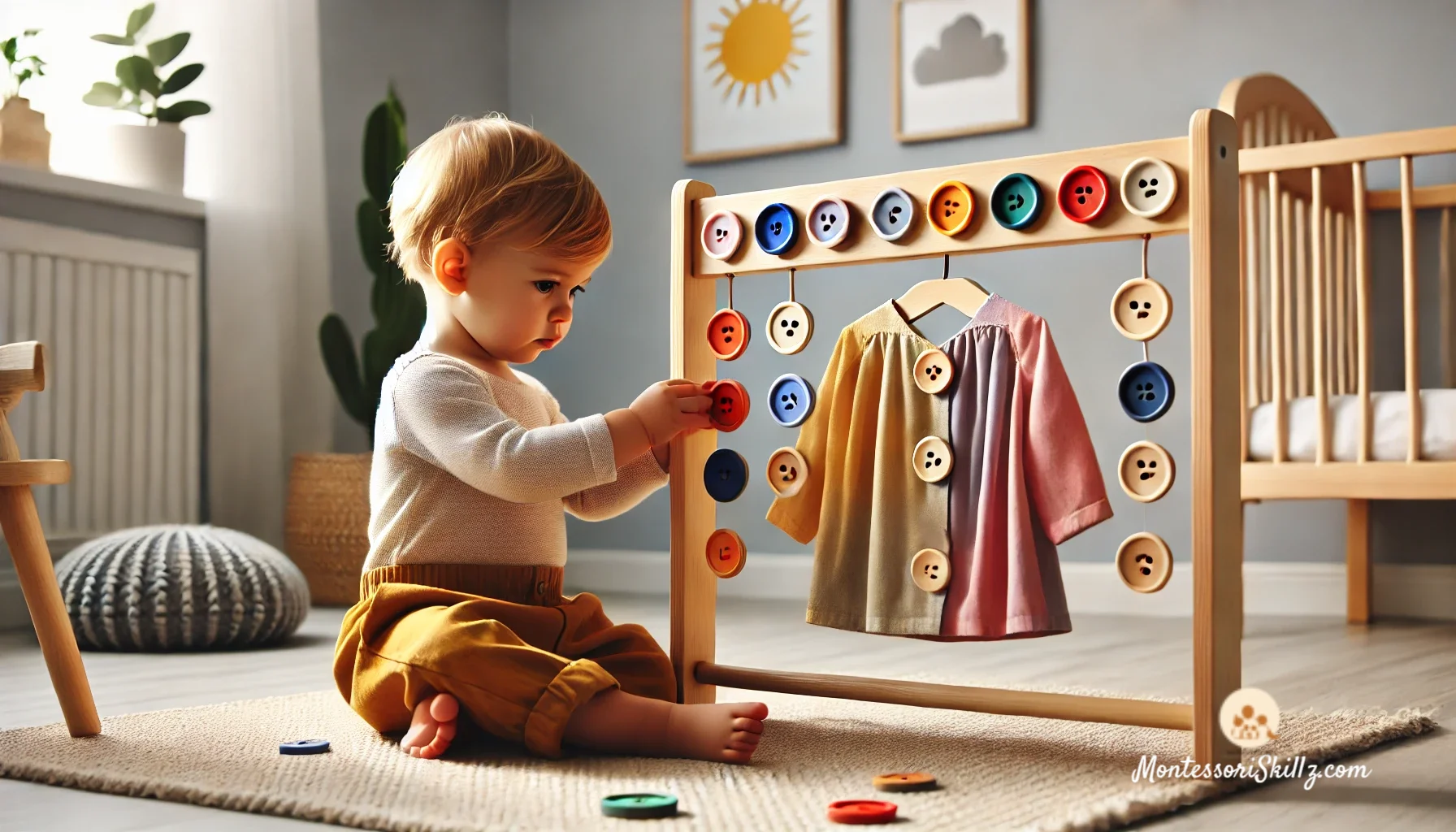Montessori activities targeting a 3-6-year-old child are focused on activities that nurture independence, fine motor skills, and sensory exploration. Below are some engaging activities, organized by theme, together with prompts to generate visuals which bring each activity to life.
Table of Contents
Practical Life Skills
Practical life activities teach children everyday activities and encourage self-independence, while developing coordination and concentration.
- Grains Pouring: With small pitchers, children pour grains from one container into another, developing precision and motor control in the process.

- Buttoning Frame:
A wooden frame with buttons on it helps the child in buttoning and unbuttoning for strengthening finger dexterity.
a toddler in montessory activity - Polishing Silver:
The children use a polishing cloth and silverware to care for their environment while developing their fine motor movements.
Sensorial Exploration
Sensorial exercises sharpen children’s ability to discriminate and classify the physical world by means of their senses.
- Color Grading with Tablets: Children put color tablets in gradation order, helping develop visualization skills and fine motor movements.

- Sound Cylinders:
The sound cylinders are shaken by the children in order to create pairs matching sounds, therefore discriminating between the different sounds more precisely.Sound Cylinders activity - Rough and Smooth Boards:
This is an activity where children feel different textures to identify and classify materials.
Language Development
Montessori language activities set the stage for early reading and writing and verbal communication skills in a visceral, engaging manner.
- Sandpaper Letters:
With their fingers, children trace sandpaper letters, associating the tactile impression with the sound of each letter. - Moveable Alphabet:
A set of letters is used by the children to make simple words, thus forming a good foundation in reading and writing. - Object-Picture Matching:
Children match small objects to the relevant picture cards, building up their vocabulary and word recognition
Math Activities
Montessori math activities introduce simple mathematical concepts in a concrete way with hands-on materials.
- Number Rods:
These begin to teach the child how to count by arranging the rods in various ways and by building an understanding of quantity.
- Golden Beads:
This material is an intro to the decimal system by means of manipulative materials representing units, tens, hundreds, and thousands.
Cultural and Science Exploration
It introduces children into activities that take them into the world around them, making them curious and creating comprehension about other cultures, nature, and some of the scientific facets.
- Continent Puzzle Maps:
In this, children learn about continents and countries through puzzle maps. These enhance spatial awareness among children along with geographical skills.
- Life Cycle of a Butterfly:
This game teaches the children the different stages of the life cycle of a butterfly, engaging them into science and nature.
Conclusion
Montessori activities in children between 3 to 6 years form a part of holistic learning: self-determination, development of the senses, and intellectual ability are being worked out. Grouping these activities by theme will give parents and educators an easy way to provide diverse and deep experiences so consistent with a child’s natural curiosity. The activities that will be included are practical life, sensorial, language, math, and cultural activities in an engagingly self-directed learning environment for the children.














